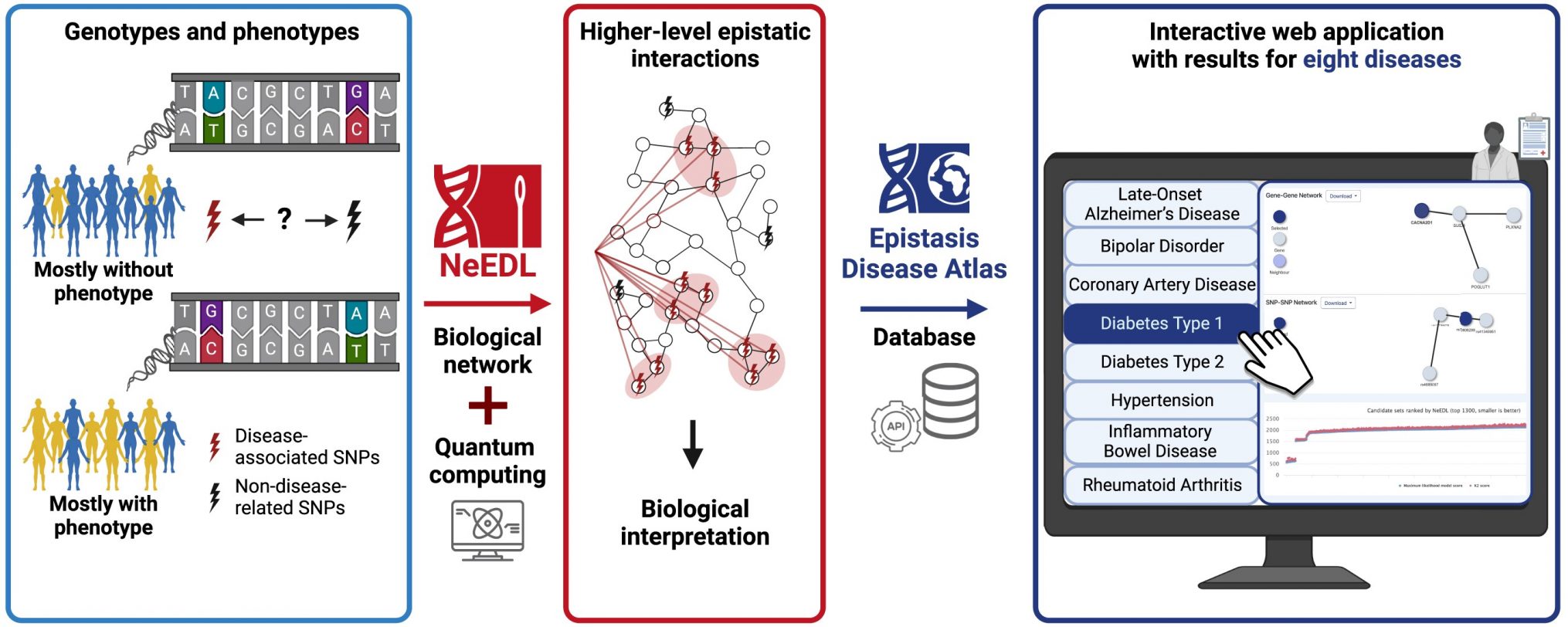New AI tool reveals hidden genetic interactions in diseases Better understanding of the causes of disease with quantum computing
After six years of intensive work, an international team of researchers has developed “NeEDL”, an innovative AI tool for analysing complex genetic relationships. This tool identifies hidden epistatic interactions (EIs) – genetic interactions that influence many hereditary diseases and have been difficult to detect until now. The genetic interdependencies found can be explored on an online platform and help in the development of therapies.

Graphical Abstract: How NeEDL works – an AI tool for investigating the causes of disease. Image credit: Markus Hoffmann et al. 2024 (Creative Commons Attribution-NonCommercial Licence)
Most inherited diseases, such as Alzheimer’s, bipolar disorder and type 2 diabetes, are polygenic. This means that they are influenced by the interaction of many genetic variants (SNPs). These genetic links are often subtle and elusive, but are crucial to understanding the causes of disease and developing targeted therapies. This is where NeEDL comes in: Using network medicine and advanced data analysis methods, NeEDL can identify complex SNP sets involved in relevant genetic interactions.
Ultimately, this produces statistically more significant results than previous methods. NeEDL has achieved this remarkable advance by using quantum computing techniques, which have the potential to significantly accelerate these sophisticated calculations once the hardware becomes available.
NeEDL has been applied to data from eight different diseases, including Alzheimer’s disease, bipolar disorder, coronary heart disease, type 1 and type 2 diabetes, hypertension, inflammatory bowel disease and rheumatoid arthritis. The results are reproducible and provide new insights into the genetic basis of many complex diseases.
The epistatic interactions found for these eight diseases can be interactively explored in the Epistasis Disease Atlas. This tool offers researchers a new perspective on polygenic diseases and could lead to the development of improved risk scores and combination therapies.
The work on NeEDL lasted six years and involved the collaboration of researchers from various renowned institutions, including the National Institute of Diabetes and Digestive and Kidney Diseases in the USA, the Technical University of Munich, the University of Hamburg and many others worldwide.
The Peter L. Reichertz Institute for Medical Informatics and the Braunschweig Integrated Centre of Systems Biology (BRICS) were involved in the design and management of the project. Researchers from TU Braunschweig contributed to the data analysis and application of advanced data science techniques that supported the accuracy and efficiency of NeEDL.
